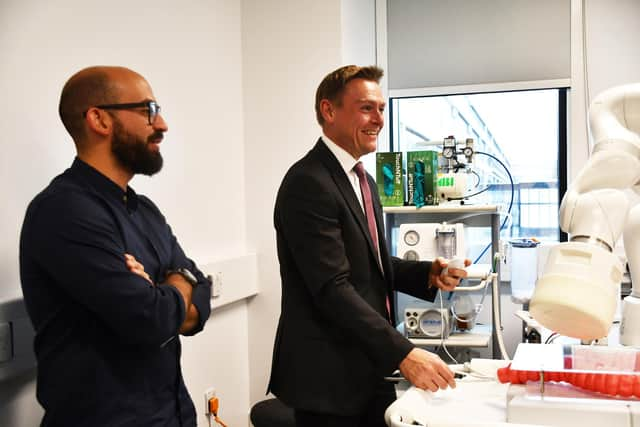New report highlights areas of Yorkshire with "thriving" engineering sectors
The Engineering, Economy & Place report shows that across Yorkshire and the Humber, engineering employment makes up around 27.5 per cent of the overall economy. This compares to 25.9 per cent UK wide, and 20.5 per cent in London.
Large portions of East and West Yorkshire, along with Rotherham in South Yorkshire, were named as having a “thriving engineering enterprise”, or named as “high volume engineering cities”, where engineering contributes a large amount to the overall economy.
Advertisement
Hide AdAdvertisement
Hide AdThis compares to other areas of the UK, including the Tees Valley Coast, which the report names as “underperforming specialists”, where engineering specialisms have not been transferred into economic growth.


Business leader and honorary University of York professor Dr Dick Whittington FREng, who worked on the report, cited Leeds as a “poster child” for how local authorities, universities and businesses can work together to grow the engineering economy.
Dr Whittington said: “A lot of the issues addressed by this report actually come down to increasing local collaboration and communication between key bodies. In many cases, you’re not talking about huge investment programmes, you’re talking about improved local ecosystems of people working together for common interests.
“Leeds has been a poster child for the UK in that. You have businesses and public organisations in the city working with the public and private sector around the West Yorkshire area, and that's exactly what is needed nationwide to create the kind of increased growth that the economy can benefit from.”
Advertisement
Hide AdAdvertisement
Hide AdLeeds is also home to Nexus, at the University of Leeds, which seeks to bring together business, technology and academia. Nexus was last week visited by Will Quince, UK Minister for Health & Secondary Care, who visited to learn how the hub was developing innovative healthcare technologies.
Other areas in Yorkshire were named as places with “embedded engineering”. These are areas where engineering is least distinctive in the local economy. The report notes that engineering does, however, still play an important supporting role in these places in terms of employment.
In Yorkshire, these areas include Harrogate, York and Scarborough.
Dr Whittington cited biotech and agritech, along with digital media smart software as strengths for the York and North Yorkshire engineering sector.
Advertisement
Hide AdAdvertisement
Hide AdHe added: “In North Yorkshire, engineering is still a high employer, but it's generalised, and not well connected, so i think there's a lot of untapped potential.
“We need to look at its heritage, look at its skills base and its proximity, and what we can do to set a division for where it can succeed, then look at local initiatives which can be done to pump up the economy.”
Dr Whittington also noted his belief that a “place-based” approach to helping other areas achieve economic growth in engineering was required.
He said: “Large national solutions aren't the answer. Its about place-based, local solutions, working with local strengths and weaknesses. We need to look at regions in terms of their distinctiveness and look at their ecosystems and what can be developed to benefit engineering in that region.”